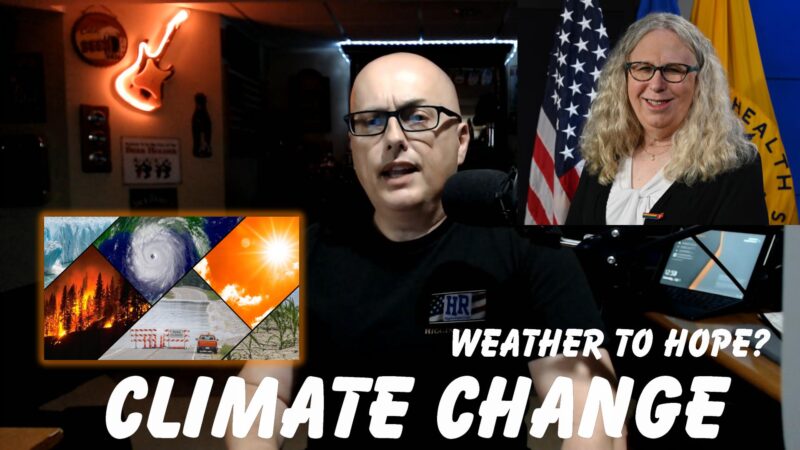
Welcome to another enlightening edition of the Higginsreport, where we fearlessly tackle pressing issues that dominate our world. Today, we delve into the multifaceted topic of climate change, exploring its causes, implications, and the startling revelations that often get lost in the mainstream narrative. Buckle up as we embark on a thought-provoking journey through the ever-changing climate landscape, guided by an unyielding commitment to truth and facts.
Climate Change – A Closer Look at Its Definition
Let us begin by dissecting the concept of climate change itself. Defined by the mainstream narrative, climate change refers to long-term shifts in temperatures and weather patterns, supposedly fueled by human activities, particularly the burning of fossil fuels. But is there more to this story? Are we truly capturing the full picture of this complex phenomenon?
The Admiral’s Influence – Empowering Women and Challenging Norms
Before we proceed, let’s acknowledge the achievements of Admiral Rachel Levine, recognized as the woman of the year, last year. As a role model, she inspires women everywhere to break free from societal expectations. Ladies, consider the possibilities of saving time and money by reevaluating certain grooming practices. And while we’re at it, let’s question the prevailing notions surrounding gender and personal choices. After all, true empowerment lies in embracing individuality. She/her breaks the mold that women need to be attractive, or that they even be a woman in reality. A man he/him can be a woman she/her. What’s this got to do with Climate Change? If you believe a man is a woman then climate change is right up your alley!
Healthcare’s Environmental Footprint – Uncovering the Truth
A startling revelation awaits us as we examine the healthcare sector’s role in climate change. Surprisingly, a study from a decade ago revealed that healthcare “activities” alone contribute to a significant 8 percent of the nation’s greenhouse gas emissions. However, it’s important to note that this study conveniently ignores recent incidents like the Canadian wildfires. Let’s dig deeper to understand the environmental impact of heating, cooling, and energy-intensive services within the healthcare system. Is it really necessary to heat or cool buildings where sick people will be attended to? Should life sustaining equipment be left turned on to keep someone alive? These are the ridiculous implications of those championing bringing down the carbon footprint of the healthcare sector.
Unmasking the Culprits – Ventilators, Electricity, and Unexplored Alternatives
The healthcare industry’s reliance on electricity becomes evident when we consider the demand for energy-intensive medical devices, particularly during the unprecedented challenges posed by the Covid pandemic. Ventilators, crucial for patient care, rely heavily on electricity. Perhaps it’s time to explore more sustainable alternatives, like solar-powered solutions. Let’s embrace innovation and find a balance between providing quality healthcare and reducing our environmental footprint. Of course, solar alone can’t cut it. What about wind, uh, no. When it comes to life saving equipment, honestly folks, it’s fantasy to think we are at a point we can stop relying on conventional means of power generation. Granted, no reason not to persevere.
Balancing Act Illusion – The Myth of Net-Zero and Fiscal Responsibility
Net-zero, a buzzword gaining momentum, promises a balanced budget utopia. Here in Illinois, our illustrious Governor Prickster and lawmakers proudly proclaim their commitment to this ideal. However, the exodus of residents begs us to question the practicality of this notion. Can we truly achieve net-zero when our citizens are fleeing? Let’s scrutinize the illusion of fiscal responsibility and examine its impact on the overall well-being of our state. Getting to a Net-Zero carbon footprint is equal folly currently, but no reason not to persevere.
As we conclude our exploration of climate change in this edition of Higginsreport, it is essential to reflect on our individual contributions to this global challenge. How can we take meaningful steps to mitigate our impact on the environment? From conserving energy in our homes to exploring innovative healthcare practices, each of us has a role to play. By promoting transparency, embracing responsible choices, and challenging the status quo, we can pave the way for a more sustainable future. Together, let us embark on this journey of discovery, seeking truth amidst the cacophony of narratives that surround us. Let’s face it, weather happens. Are humans affecting the weather? The environment will always be here by default. The question is, will it be suitable for human habitation.
